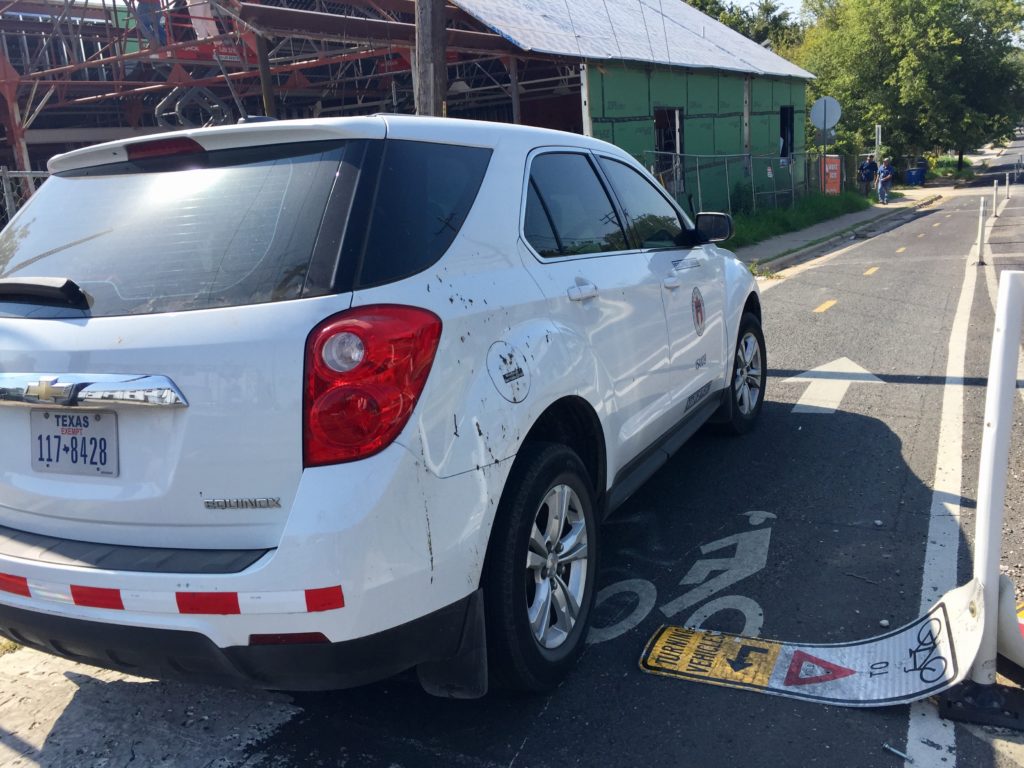Reporter’s Notebook: Zero vision
Monday, September 18, 2017 by
Austin Monitor More, no doubt, to come… As we all well know, the second draft of CodeNEXT was released Friday. As usual, it’s a dense tome that land use enthusiasts studied in earnest over the weekend, and will continue to study in the weeks to come. However, we were gifted some initial impressions from local groups and coalitions. Community Not Commodity released the following statement in response to the release of CodeNEXT Draft Two: “CodeNEXT Draft One has been called a Frankenstein, and now we will find out if Draft two is the son of Frankenstein. Our team of over 20 experts has already set about deciphering Draft Two and will release their findings this Tuesday at 11:00 AM, at a press conference at City Hall. The public has a right to know the good, the bad, and the ugly. … One ugly reality is that the pro-CodeNEXT campaign is a front for the largest real-estate development scheme our city has ever seen. The previous director of the pro-CodeNEXT campaign came from the Chamber of Commerce and now lobbies under the former Real Estate Council of Austin executive director. It is common knowledge that their top financiers are the Real Estate Council of Austin, the Austin Board of Realtors, the Homebuilders Association, and the Austin Apartment Association, which is why Evolve Austin refuses to publicly disclose its top donors and the amounts contributed.” Evolve, which is a coalition of local groups that supports implementation of the Imagine Austin Comprehensive Plan, stuck to its message with a couple of initial impression tweets:
And, from Austin Neighborhoods Council President Mary Ingle: “Obviously we will wait for Community Not Commodity’s expert research group’s report of what the new code actually does to neighborhoods to offer an official position. Unfortunately, what we know so far is that despite the city’s much touted process of listening, it doesn’t appear that the citizens of Austin have been heard. … At first glance it appears that this new version of CodeNEXT simply spreads the devastation of neighborhoods over more areas of the city. They continue to overpack and underpark single family neighborhoods to increase the real estate industry’s profits under the guise of social justice. It even goes so far as to eliminate single family zoning! … The Mayor is going to have to decide who he’s keeping his promise to, the Real Estate Council or Austin’s neighborhoods? Ultimately, we hope the voters get to decide this point rather than city staff and the real estate industry.”
Greek tragedy… A Greek fellow named Aristotle once wrote, “For the offices of a city are its honors, and if one set of men are always in power, it is evident that the rest must be without honor.” So it must be that when the Development Services Department is on the prowl in East Austin, its honorable employees must take precedence over the muddled masses who use the two-way cycle track on Pedernales Street. We’re still not entirely sure how parking city vehicles in bike lanes helps the Vision Zero program, but as another famous Athenian once said, “So you see, our lives are but specks of dust falling through the fingers of time.”

Taxes went up how much?… In an ostensible attempt to discourage local officials from raising taxes, the state of Texas requires mayors to publicly read a very specific text before City Council adopts a tax rate increase. The tax increase must also be subject to a roll call vote, with each Council member answering “yea” or “nay,” rather than simply raising their hand, as they do on most other matters. As Council was prepared to adopt a rate increase Wednesday night, part of the text Mayor Steve Adler was legally required to read surprised some of his colleagues. According to the text, Council was set to adopt an increase of 8.3 percent. Staff had repeatedly said the budget represented only a 7.9 percent tax increase, right below the 8 percent “rollback rate.” If the rollback rate is exceeded, voters can petition to challenge the increase by referendum. Asked about the discrepancy, Deputy Chief Financial Officer Ed Van Eenoo told Council members not to worry. The 8.3 percent figure was a calculation that was “specific to state law” and is “not the same as the rollback calculation.” That seemed to assuage the dais, but Council Member Leslie Pool wanted to be sure that everybody in the room understood. “I just want to make sure that that’s really clear to the media and everybody who’s here on the off chance that someone misunderstands it and, I don’t know, tweets it out and says, we’re above the rollback rate. We are actually below it.” For good measure, she asked Van Eenoo “to tell us one more time.”
This week’s Reporter’s Notebook comes from the notebooks of Jack Craver, Caleb Pritchard and Elizabeth Pagano.
The Austin Monitor’s work is made possible by donations from the community. Though our reporting covers donors from time to time, we are careful to keep business and editorial efforts separate while maintaining transparency. A complete list of donors is available here, and our code of ethics is explained here.
You're a community leader
And we’re honored you look to us for serious, in-depth news. You know a strong community needs local and dedicated watchdog reporting. We’re here for you and that won’t change. Now will you take the powerful next step and support our nonprofit news organization?









